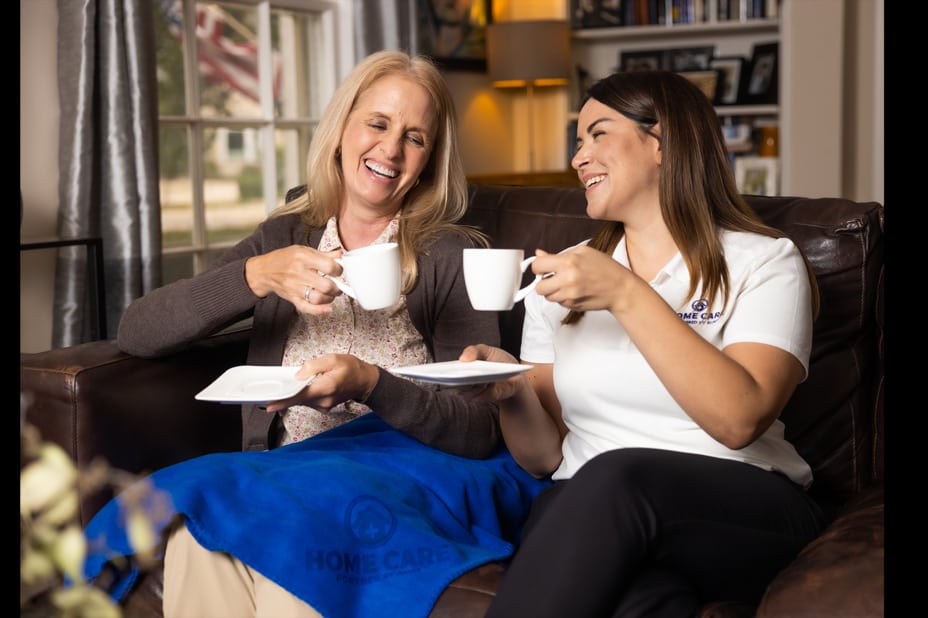
Creating a Long-Term Care Plan for Elderly
May 12, 2020What this current pandemic may have brought to light for many people is the way that care is being handled. Oftentimes as people age they may not think about the importance of identifying the form of care that they would like as they grow older.
Different Types of Care for Seniors
The reality is that in this day and age there are many different options when it comes to care. Individuals have access to nursing home care, adult day care centers, home health aides, in-home care aides, as well as other options. Deciding on the type of care appropriate for you or your loved one depends on a variety of factors. This often includes the level of care that you or your loved one requires and the goals that you have with care.
Different types of care offer varying levels of independence and direct intervention in daily tasks. For example, a nursing home will mean living in a facility where your care is handled daily among a group of others. In some cases this will be the best option. For others, options like in-home care work better. This would be in cases where there is a desire for more independence and aging at home.
In-Home Care
In-home care has been growing significantly in this millennium. It has presented a very different approach to care for aging adults. There is a sense of autonomy retained with in-home care. But, with that autonomy comes help with daily tasks if needed.
And even in-home care has varying levels. In-home care also presents the option of having family members care for loved ones. It’s one of the types of care that is becoming increasingly important in the long-term care plans for seniors.
Family Caregivers
While not all in-home caregivers are family caregivers, the option of being a family caregiver has presented many different positive aspects for care. The option of family caregiving, where a family member provides formal care for an aging loved one, helps many seniors break the transition from being on their own to receiving care.
There are many seniors who may be uncomfortable with the idea of care. Because of this they will not think about long-term care as a part of their aging plan. In fact they may not have a plan at all. But, the idea of having a family member become their caregiver makes that transition to care easier.
Oftentimes individuals are more comfortable with their family members and would otherwise not accept help from anyone else. That is exactly why home care is incredibly important. In-home care is reaching people that may have not otherwise asked for care when they needed it.
Home Care Powered by AUAF
Home Care Powered by AUAF has been dedicated to in-home care for over 25 years. We have helped reach underrepresented seniors in the care community because of CLESE (The Coalition on Limited English Speaking Elderly). CLESE was able to identify the ways in which seniors from different immigrant and minority groups were underrepresented in long-term care. This was often because of cultural taboos and norms around care. This is why the emergence of in-home care, and the option for adult children to care for their parents is breaking barriers.
We at Home Care Powered by AUAF care about reaching everyone in the communities we serve.
Making a Plan for Elderly Care
Deciding on the appropriate type of care for you or your loved one will begin with a conversation. Think about the benefits to different types of care. It’s also important to think about family history when it comes to health conditions. This is because your plan of care may need to change or have options in place depending on different health conditions. Not every type of care is appropriate for every level of need.
In-Home Care Is a Good Fit for Many
You should decide on the type of care appropriate after careful consideration of the options you and your loved ones have. In-home care has become one of the more versatile and growing parts of any care plan. Because of that you should consider the option of in-home care and how it may fit in different parts of you or your loved one’s long-term care plan.
If you have any questions for us give us a call at 773.274.9262
Articles:
-
How to Use FaceTime: a Senior’s Guide
March 20th, 2024 -
The Best Organic Cleaning Products for Caregivers
March 19th, 2024 -
Celebrating St. Patrick’s Day with Seniors
March 14th, 2024 -
Intellectual Activities for Seniors to Keep their Brains Stimulated
March 13th, 2024 -
Tips for Communicating with Seniors with Hearing Loss
March 12th, 2024 -
How to Learn a New Language as an Older Adult
March 7th, 2024 -
Foods that Support Bone Health in Seniors
March 6th, 2024 -
A Note to Our Staff for Caregiver Appreciation Day
March 1st, 2024 -
The Importance of a Senior/Caregiver Bond
February 21st, 2024 -
Recreational Sports as Fitness for Seniors
February 27th, 2024 -
Exploring the Wonders of Reminiscence Therapy
February 15th, 2024 -
Staying Educated on Alzheimer’s Disease and Dementia Care
February 14th, 2024
Call Now! 773.274.9262




